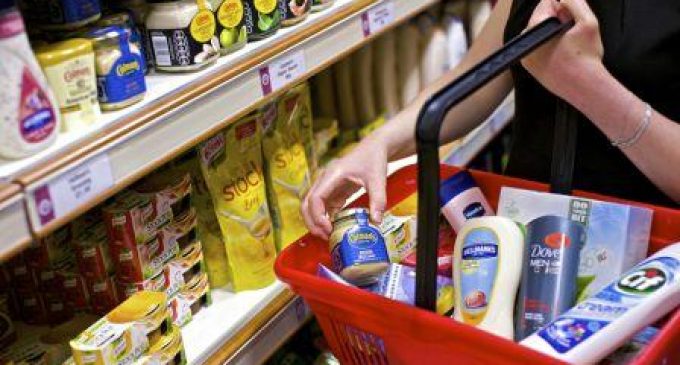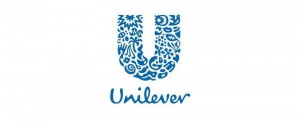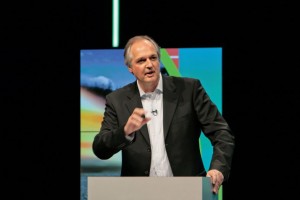Unilever Shows Resilience in a Challenging Year

Unilever the global foods, refreshment, personal care and home care group has reported a 10% increase in turnover to €53.3 billion for 2015 including a positive currency impact of 5.9%. Underlying sales growth at 4.1% was ahead of its markets, with volume up 2.1% and price up 1.9%. Core operating margin at 14.8% rose by 30bps.
All categories delivered progress against their strategic priorities: Personal Care and Foods achieved improved growth while maintaining strong profitability and cash flow. Home Care and Refreshment improved margin and cash flow while continuing to grow competitively. Emerging markets grew by 7.1% with an increased contribution from volume. Developed markets were flat with good volume growth in Europe being offset by continued price deflation.
Paul Polman: chief executive of Unilever, comments: “Despite a challenging year with slower global economic growth, intensifying geopolitical instability, and high currency and commodity volatility we have again grown ahead of our markets, driven by our innovations and increased support behind our brands. The 2015 results further demonstrate the progress we have made in transforming Unilever into a more resilient business, capable of consistently delivering competitive underlying sales growth, margin expansion and strong cash flow.”
He elaborates: “This consistency of performance shows that our focus to build Unilever for the long term is paying off. We are starting to see the results from sharpened category strategies that guide increased investment in our brands, our infrastructure and our people as well as extensions into attractive new markets like Prestige Personal Care.”
Consumer demand remained fragile during the year and volume growth was barely positive in the markets in which Unilever operates. Many emerging markets continued to be weak, particularly those dependent on oil and other commodity exports and those where currency devaluation is pushing up the cost of living for our consumers. Market growth in developed markets was negligible.
Within Unilever’s Foods business, savoury showed good volume-driven growth led by cooking products in emerging markets and by innovations around naturalness and health such as Knorr Mealmakers with 100% natural ingredients in Europe and fortified stock cubes which help address iron deficiency in Africa. In dressings, Hellmann’s demonstrated good growth driven by a strong performance in Latin America and by the success its new squeezy packs in Europe and North America. The Baking, Cooking & Spreads unit is repositioning the business to more attractive segments which helped Unilever to gain market share in margarine. However, sales in spreads continued to decline as Unilever was not able to stem the sustained market contraction in developed countries.
Core operating margin in Foods was down 40bps due to increased costs including higher brand and marketing investment. Core operating profit was up by €0.1 billion at €2.4 billion. Underlying sales growth in Foods was 1.5% to €12.9 billion with underlying volume growth of 0.8%.
Refreshment
Core operating margin in the Refreshments business was up 60bps driven by improved mix and savings in ice cream. Core operating profit increased by €0.1 billion to €0.9 billion. In line with its strategy, the cash delivery of the ice cream business was stepped up.
Ice cream delivered strong growth driven by margin-accretive innovations behind premium brands, such as Magnum Pink and Black variants, the Ben & Jerry’s Cores range and new flavours of Breyer’s Gelato. Unilever continue to build its presence in premium gelato with the recently acquired Talenti which grew more than 40% and with Grom which was aquired in October. In leaf tea Unilever reinvigorated the Lipton brand with an improved mix and new packaging but growth was below its markets. Lipton and PG Tips were extended further into fruit, herbal and speciality teas where Unilever is still under-represented. Unilever is building its presence in the premium segment by opening more T2 stores which is being leveraged with online sales and by launching machine-compatible tea capsules in Europe.
Refreshment underlying sales grew by 5.4% to €10.1 billion with underlying volume growth of 1.5%.
Paul Polman continues: “We are preparing ourselves for tougher market conditions and high volatility in 2016, as world events in recent weeks have highlighted. Therefore it is vital that we drive agility and cost discipline across our business. We are further strengthening our innovation funnel while shortening innovation cycle times, stepping up our digital capabilities and rolling out a global zero based budgeting programme. Our priorities continue to be volume-driven growth ahead of our markets, steady improvement in core operating margin and strong cash flow.”



































